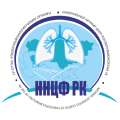The Editorial Board of the journal «Phthisiopulmonology» (hereinafter – the Journal) adheres to internationally recognized principles of publication ethics, including the Code of Publication Ethics (COPE), the Constitution of the Republic of Kazakhstan, Articles 971–984 of the Civil Code of the Republic of Kazakhstan (Special Part), the Law “On Copyright and Related Rights”, Chapter 3 of the Law “On Science”, as well as best practices of leading international journals and publishers.
To prevent unfair practices in scholarly publishing (plagiarism, falsification, duplicate submissions, etc.), all participants of the publication process – editors, members of the Editorial Board, authors, and reviewers – are required to comply with ethical norms and to take measures to prevent violations. Manuscripts found to contain false information, plagiarism, or duplicate publications will be rejected or retracted. Adherence to publication ethics safeguards authors’ intellectual property rights, ensures the quality of publications, and prevents misuse of copyrighted materials.
Ethical Principles for Authors
Authors are expected to:
- Present reliable and original data, ensuring that each co-author has made a significant contribution to the research. Fabrication or falsification of data is unacceptable.
- Promptly notify the editorial office of any errors or inaccuracies identified after submission or publication.
- Confirm that the manuscript is original, has not been published previously, and is not under consideration elsewhere.
- Properly acknowledge sources and cite prior work without distortion. Direct quotations must be indicated with quotation marks and appropriate references.
- Avoid plagiarism and self-plagiarism.
- Indicate all sources of financial and material support.
- Structure manuscripts in accordance with the Journal’s requirements.
- Comply with international copyright standards and national legislation.
- Respect reviewers’ and editors’ comments and provide necessary clarifications or additional data.
Ethical Principles for Reviewers
Reviewers must:
- Conduct objective and confidential peer review aimed at improving the quality of manuscripts.
- Provide clear, well-reasoned, and unbiased comments.
- Respect the confidentiality of manuscripts and not use unpublished data for personal purposes.
- Declare conflicts of interest (financial, academic, or personal) that may affect objectivity.
- Decline review if a conflict of interest exists.
Ethical Principles for Editors and the Editorial Board
Editors and members of the Editorial Board are responsible for the integrity of the publication process. They must:
- Make editorial decisions based solely on scientific merit, relevance, and reliability of data.
- Ensure confidentiality of submitted manuscripts and reviewer identities.
- Avoid conflicts of interest in relation to accepted or rejected manuscripts.
- Prevent publication of materials if there is evidence of plagiarism or research misconduct.
- Publish corrections, retractions, or clarifications when necessary.
Ethical Principles for the Publisher
The Publisher undertakes to:
- Support the Editorial Board, reviewers, and authors in fulfilling their ethical responsibilities.
- Safeguard confidentiality of submitted manuscripts.
- Ensure that commercial interests (e.g., advertising revenue) do not influence editorial decisions.
- Cooperate with other publishers and organizations in addressing ethical concerns.
- Facilitate the retraction or correction of publications containing unreliable data or plagiarism.
Privacy and Confidentiality
- All unpublished materials are treated as confidential documents.
- Personal data of authors and reviewers are protected in accordance with applicable legislation.
- Reviewers and editors may not disclose or use unpublished information for personal advantage.
Conflicts of Interest
- Authors must disclose all potential conflicts of interest.
- Editors and reviewers must recuse themselves from handling manuscripts where conflicts exist.
- In case of ethical complaints regarding submitted or published manuscripts, the Editor-in-Chief will investigate in accordance with COPE guidelines. Corrections, retractions, or apologies will be issued as necessary.
Human and Animal Rights, and Informed Consent
The Journal follows the WMA Declaration of Helsinki – Ethical Principles for Medical Research Involving Human Subjects.
Research involving humans must comply with ethical standards, informed consent requirements, and relevant legislation. Participation must be voluntary, with explicit consent obtained from each subject.
Animal research must demonstrate humane treatment and comply with established international guidelines.
Authors must state in the manuscript that informed consent was obtained and that ethical approval was granted by the relevant institutional committee.
